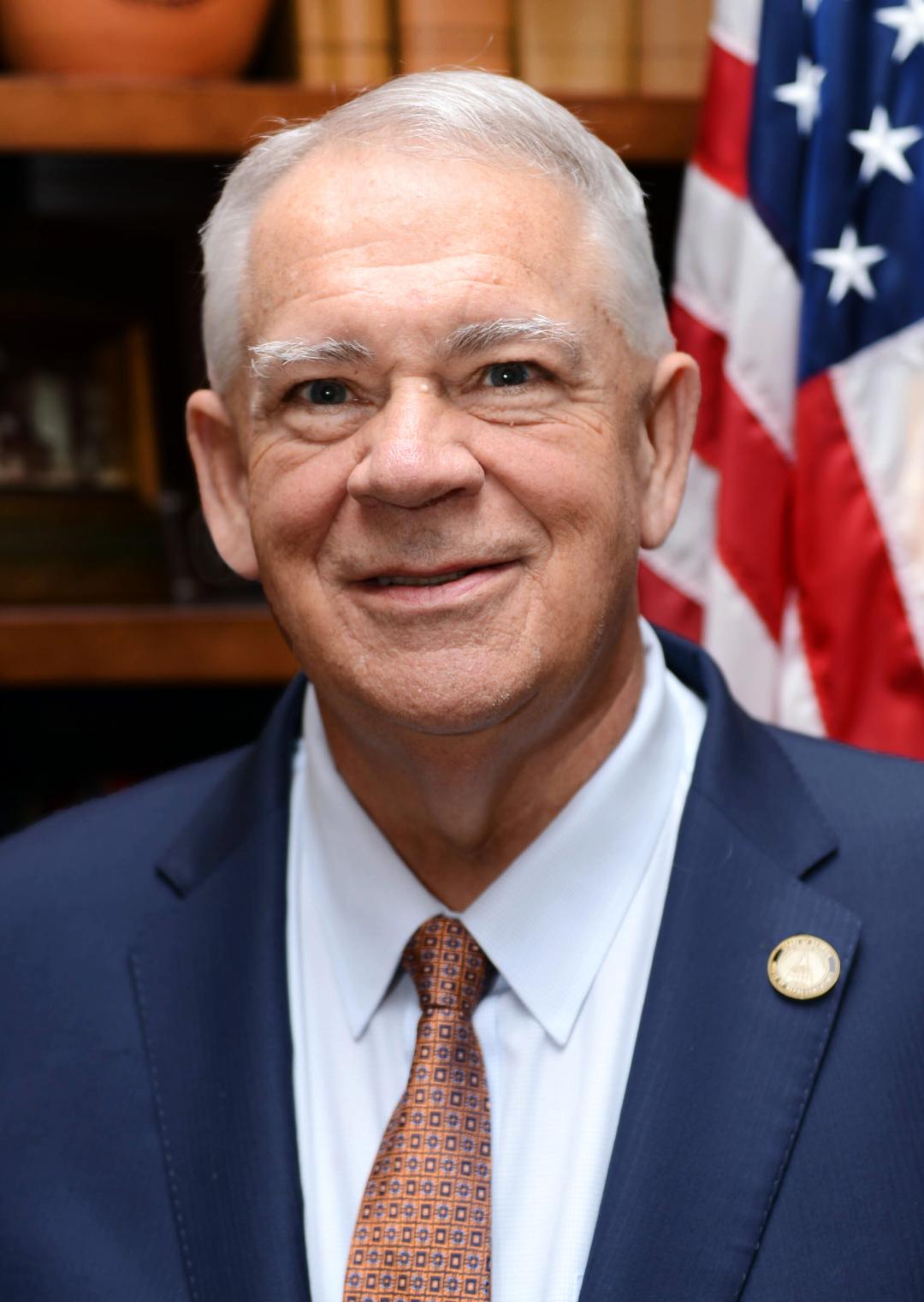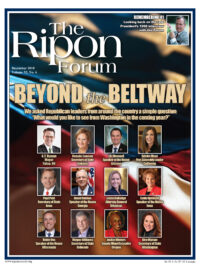
When we look to Washington D.C., we look through the lens of what John Winthrop described as, “a city upon a hill.” We don’t expect partisan rancor or a bureaucracy mired in red tape. We expect to see the potential of a nation, the promise of a better tomorrow for every American.
In today’s political landscape, it can be so difficult to see how far we have come. On a recent visit to the President Ronald W. Reagan Presidential Library in California, I was reminded how much the tone and tenor of our discourse can affect the mood of the nation.
President Reagan, like leaders from both sides of the aisle, liked to rely on Winthrop’s words to describe his vision, his way of looking at America’s potential. It wasn’t until his farewell address to the nation in January 1989 that he fleshed out that vision.
President Reagan said, “…In my mind it was a tall, proud city built on rocks stronger than oceans, wind-swept, God-blessed, and teeming with people of all kinds living in harmony and peace; a city with free ports that hummed with commerce and creativity.”
The power that underlies Republican Party principles is one of endless opportunity.
When we contemplate what we want to see coming out of Washington, we must first think of what we want to see our nation be and what we want to see our nation become.
The power that underlies Republican Party principles is one of endless opportunity. Our party is rooted in a positive vision that anything you are willing to work for can be achieved.
That is why it is so critical that the ideas and policy proposals coming from Washington must embrace with enthusiasm empowerment through opportunity.
That’s why landmark legislation like the Tax Cuts & Jobs Act, which has created jobs, empowered families to save, and allowed businesses to reinvest, is so vital to our way forward.
That’s why proposals like the President’s Infrastructure Initiative, which would create partnerships between government and private business, are so necessary.
These ideas and initiatives are forward-thinking, positive ways to make our nation better by expanding economic opportunity and stimulating economic activity.
If we can focus on where we want our nation to go, we can tackle significant public policy challenges and find new ways to keep America that bright, shining city upon a hill.
But how do we ensure these proposals become policy? How do we move forward in a time when Washington D.C. seems stalled on bringing any “big ideas” into reality?
Some will tell you that we must make fundamental changes to our political structure to ensure continued progress. I don’t wholly disagree with this way of thinking, but I do think you have to be careful in tinkering with the framework of our system of government.
I know concepts like Congressional term-limits are nothing new. They offer a convenient elixir for those looking to cure the ills of “the swamp.”
I appreciate every member of Congress and am grateful for their service. I can only imagine how frustrating it must be for them to be stymied by gridlock.
But I’d offer another idea. In Georgia, our General Assembly is limited by our state constitution to meeting for just 40 legislative days per year. Now with weekends and committee-work days, those 40 legislative days usually stretch out to about three months, so there is a way to allow for extra time if needed.
But we do not have the luxury (or curse) of an endless calendar like Congress does. If you want to make Congress, and the federal government as a whole, more responsive and more accountable to the will and needs of the nation, perhaps limiting the amount of time it can be in session per year would serve to apply some gentle pressure.
They say work expands to fill the time allotted. Maybe a deadline would help move work along.
For example, if you limited Congress to meeting for only six months of the year, you’d not only have the benefit of saving money on security and other expenses, but you’d allow members to spend more time in their home states.
They’d get to see firsthand the challenges and opportunities at home and design more thoughtful legislation on how to tackle those issues.
I appreciate every member of Congress and am grateful for their service. I can only imagine how frustrating it must be for them to be stymied by gridlock.
We all want our nation to be better. As Republicans, we have some very positive ideas on how to achieve long-term goals.
Perhaps, at the end of the day, all we need is a deadline to help us get there.
It may not cure every ill, but if it gets us one step closer to President Reagan’s vision of us as that “city on a hill,” it is worth a shot.
David Ralston is the 73rd Speaker of the Georgia House of Representatives.




